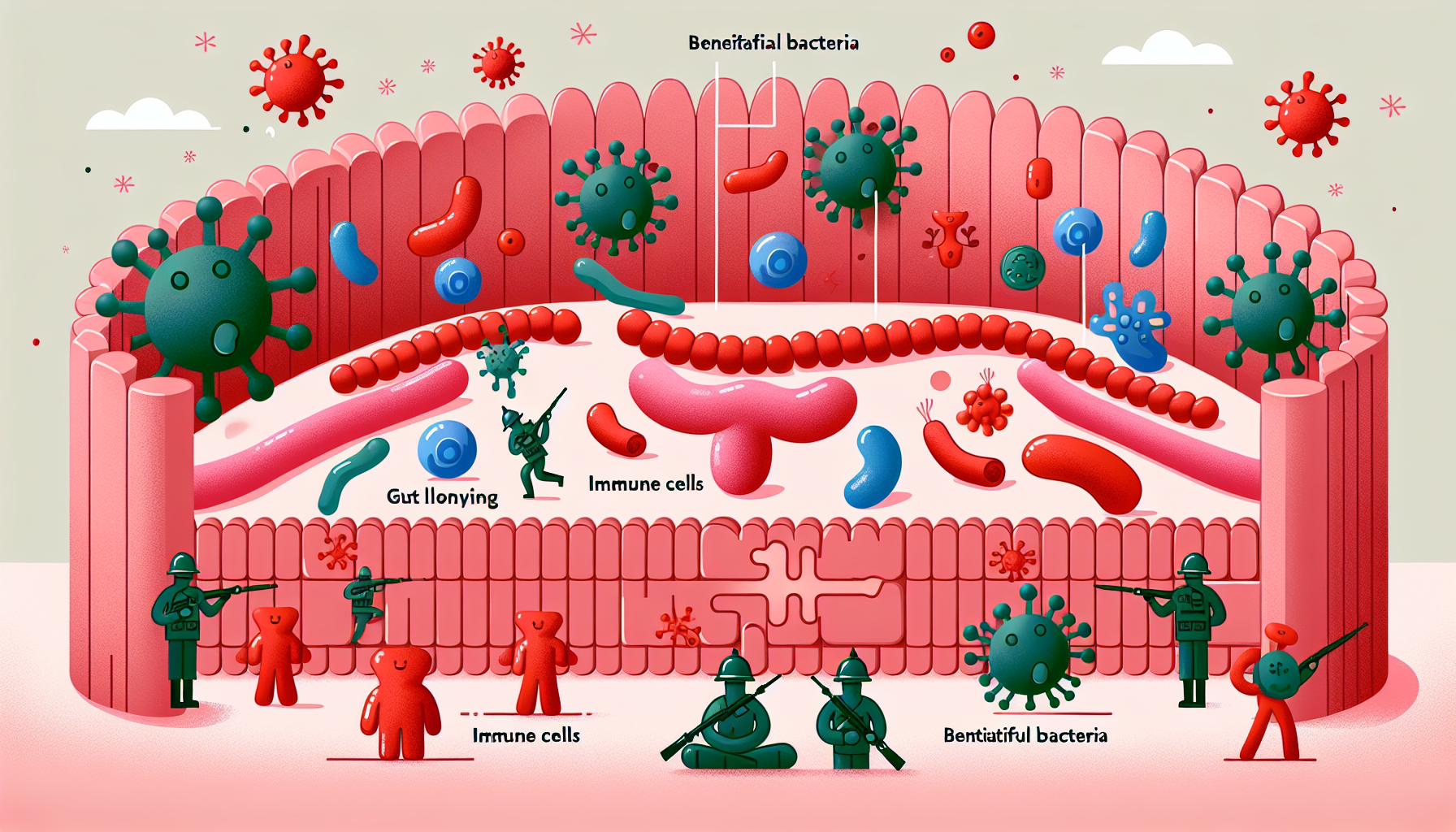The human body is a complex and intricately connected system, where the functioning of one aspect can significantly influence another. Among these connections, the relationship between digestive health and immunity stands out as particularly influential on overall wellbeing. This article delves into this critical relationship, exploring how a healthy digestive system can bolster immune function, and conversely, how immunity can impact gut health.
Digestive Health: The Foundation of Immune Response
The gastrointestinal (GI) tract is more than a digestion center; it’s a pivotal arena for immune activity. Home to a vast array of microbes, collectively known as the gut microbiota, the digestive system plays a crucial role in developing and maintaining the immune system.
The gut’s mucosal surface is the primary contact point between the external environment and the body’s internal systems. It is here that the immune system is exposed to various antigens, from beneficial bacteria to potential pathogens. The gut-associated lymphoid tissue (GALT), which includes Peyer’s patches and other lymphatic tissue, is key in generating immune responses.
A balanced microbiome supports the integrity of the gut barrier, preventing unwanted substances from entering the bloodstream and triggering inflammation or immune responses. Prebiotics, probiotics, and a nutrient-rich diet are essential in nurturing this microbiota, leading to a robust immune system.
For those interested in a deeper understanding of digestive health, Avix Health’s comprehensive guide on the subject is an excellent resource.
Immunity’s Influence on Digestive Health
While the digestive system influences immunity, the relationship is reciprocal. The immune system, through its surveillance and defense mechanisms, can significantly impact the health and balance of the digestive tract. Inflammation, a typical immune response, can sometimes become chronic and contribute to gastrointestinal issues such as Irritable Bowel Syndrome (IBS), Crohn’s disease, and ulcerative colitis.
The intricate balance between the immune system and gut microbiota is delicate. When this balance is disrupted, it can lead to dysbiosis, where harmful microbes outnumber beneficial ones, potentially resulting in allergies, autoimmune disorders, and a weakened immune response.
To maintain this balance, it’s crucial to manage stress, get adequate sleep, and exercise regularly. Fitness Planning for Shift Workers provides valuable tips for incorporating exercise into a busy schedule, which can indirectly contribute to digestive and immune health.
Nutrition’s Role in Gut and Immune Health
Nutrition is the cornerstone of both digestive and immune system health. The gut requires a steady supply of nutrients to maintain its lining, support the microbiota, and provide energy to the immune cells residing there. A diet rich in fiber, vitamins, minerals, and antioxidants is key to a healthy gut and a responsive immune system.
The timing of nutrient intake can also play a role in optimizing immune function. Strategic consumption of carbohydrates, proteins, and fats can enhance the body’s readiness to fight infections and recover from illness. For athletes and active individuals, understanding Nutrient Timing for Optimal Performance can offer insights into maximizing the immune benefits of a well-planned diet.
The Role of Digestive Enzymes and Gut Health
Digestive enzymes, produced both by the pancreas and the cells lining the gut, are crucial for breaking down food into absorbable nutrients. These enzymes facilitate the proper digestion of proteins, carbohydrates, and fats, aiding in the absorption of nutrients that are vital for the immune system.
When there is a deficiency in digestive enzymes, malabsorption can occur, leading to nutrient deficiencies and compromising immune function. Supplementing with enzymes or consuming enzyme-rich foods can support both digestion and the immune system. Exploring the Role of Digestive Enzymes in Gut Health provides a closer look at their significance.
External Resources for Further Reading
To expand on the connection between digestive health and immunity, there are several high-quality resources available:
- The International Foundation for Gastrointestinal Disorders provides in-depth information on the impact of digestion on the immune system.
- The American Society for Nutrition offers resources on nutrition’s role in immune health.
- The Gut Microbiota for Health, an initiative by the European Society for Neurogastroenterology & Motility, offers scientific articles on gut microbiota’s impact on health.
These resources offer targeted, niche insights into the complex interplay between the digestive system and immune function.
Strategies for Strengthening Digestive Health and Immunity
Improving digestive health to enhance immunity involves a multi-faceted approach:
- Diet: Incorporate a diverse range of fruits, vegetables, whole grains, lean proteins, and healthy fats.
- Hydration: Maintain adequate fluid intake to support digestion and nutrient absorption.
- Exercise: Regular physical activity can promote a healthy microbiota and immune system.
- Stress Management: Chronic stress can disrupt gut health, so practices like meditation and yoga can be beneficial.
- Sleep: Quality sleep is crucial for the maintenance of both digestive and immune health.
- Avoiding Irritants: Limiting alcohol, caffeine, and processed foods can prevent inflammation and support gut integrity.
In conclusion, the relationship between digestive health and immunity is a powerful one, with each influencing the other in significant ways. By focusing on a nutritious diet, regular exercise, stress management, and adequate sleep, individuals can foster a healthy digestive system that, in turn, strengthens their immune response. Understanding and nurturing this connection is essential for maintaining overall health and wellbeing.



